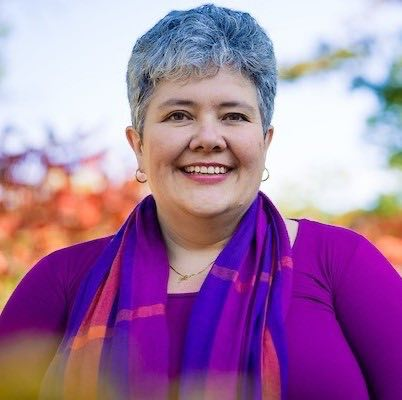The 26th Conference of the Parties to the United Nations Framework Convention on Climate Change – or COP26, as it is popularly known – was held in Glasgow from Oct. 31 to Nov. 12, 2021.
The main objective for COP26 was to build on what countries had promised six years earlier in the Paris agreement – to commit to more ambitious greenhouse gas (GHG) emissions targets and to increase funding for climate change adaptation and mitigation, particularly for those countries that have done little to contribute to climate change but bear the brunt of its effects. Advocates and climate scientists hoped the commitments agreed to in Glasgow would hold global warming to under 1.5 degrees Celsius from pre-industrial levels.
For the Love of Creation, a faith-based climate advocacy coalition whose members include the Anglican Church of Canada, KAIROS, PWRDF, and Citizens for Public Justice, had already been calling on the federal government to commit to increasing our national GHG emissions reduction targets; to invest in a just transition to a fair, inclusive, green economy; to implement the UN Declaration on the Rights of Indigenous Peoples, (including the right of free, prior and informed consent); and to support climate change adaptation and mitigation measures in the Global South.
The ACT Alliance, a global coalition of faith-based agencies (including PWRDF) working for humanitarian aid, gender and climate justice, peace and security, specifically advocated for compensation to poorer countries for loss and damage due to climate change impacts.
Unfortunately, hopes that COP26 would bring about significant climate action were disappointed. The COP26 agreement did specifically acknowledge fossil fuels as contributing to the climate crisis, the first time this language had been included in the decision text, but the calls for a “phase-down” of coal and a “phase-out” of fossil fuel subsidies were watered down from the initial draft. Developed countries also pledged to double their contributions for climate adaptation in developing nations by 2025, although this pledge did not include compensation for the impacts of the climate crisis already being felt by those nations.
Moreover, the pledges made at COP26 for 2030 would, if fulfilled, limit warming only to 2.4 degrees, or as good as 1.8 degrees if 2050 goals are also achieved, according to a recent op-ed in the Globe and Mail by Toronto-born, Christian climate scientist Katharine Hayhoe. Research group Climate Action Tracker cautioned that many of these targets depend heavily on cuts to be made further down the line, as well as on the success of uncertain measures, such as untested carbon capture technology, or reforestation efforts that could be wiped out in a day by wildfire.
Simon Chambers, communications director for the ACT Alliance and a parishioner at St. Peter, Erindale, was one of a handful of Canadian Anglicans attending COP26. “I think that in the end COP26 was a failure because it was not ambitious enough. The world is rapidly running out of time to act and, while there were some limited gains at COP26, they were not broad or ambitious enough to get where we need to. We’re at 1.2 now and we see the devastation this year at home in Canada, but that is merely an echo of what has been happening around the world for years, and in countries where there is much less infrastructure to support those affected.”
While Canada did make some positive announcements at COP26, such as a cap on emissions from oil and gas, Mr. Chambers noted that Canada’s emissions are higher now than they were in 2015 when the Paris Agreement was adopted. It is also not yet clear when that cap will take effect, or at what level it will be set.
Mr. Chambers also decried the failure of COP26 delegates to agree to loss and damage compensation for nations and communities most affected by climate change.
“As an Anglican, I feel that all of this must be done from a position of justice, not charity. We must look at the needs of the most vulnerable, who have done the least to contribute to climate change and yet face the worst of the impacts. Indigenous people in our own country, as well as all Indigenous people around the world, must receive justice, and must be included in the discussions and decisions around climate change in meaningful ways.”
A joint gathering of Indigenous and religious leaders during the COP26 summit underscored the importance of recognizing Indigenous rights and spiritualities in any effort to tackle the climate crisis. National Indigenous Archbishop Mark MacDonald, one of the leaders in attendance, noted to a reporter for Religion News Service that Indigenous life and philosophy “braid together solidarity and communion with all of creation, with all of humanity and with the spirit.”
“This insight, which is the basis of Indigenous culture, is also essential to our future,” he said. “It is absolutely critical for us to understand that Indigenous people and their life stand in a prophetic relationship with humanity’s future. Let us take heed. Let us listen. Let us understand, for in this we will find life.”
For Karri Munn-Venn of Citizens for Public Justice, an Anglican from the Diocese of Ottawa who attended COP26 as part of a virtual delegation of members of For the Love of Creation and the United Church of Canada, the shortcomings of COP26 may, for many in Canada, be “merely disappointing,” but for those on the front lines of the climate crisis, these shortcomings threaten “ongoing devastation, [even] potential extinction.” Yet, in the advocacy efforts from people around the globe, she found a message of resistance and hope. “Fortunately, the fate of the climate doesn’t rest solely in the hands of ‘world leaders.’ There is hope and there is power in coming together to resist, to advocate, and to act for change.”
Elin Goulden is the diocese’s Social Justice and Advocacy Consultant.








Do you have a room to spare?